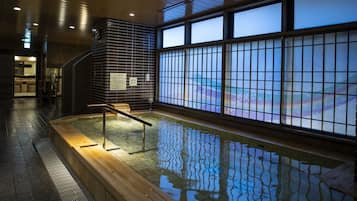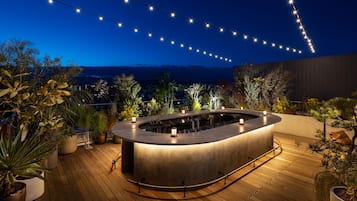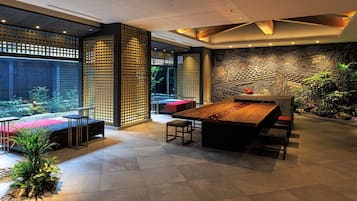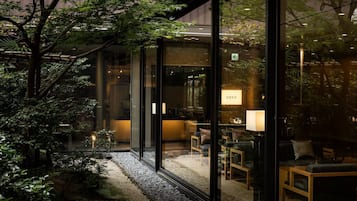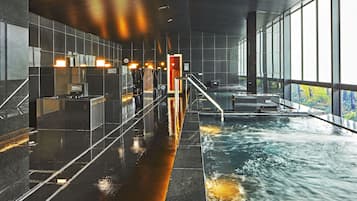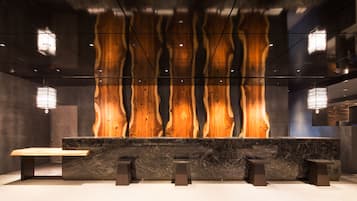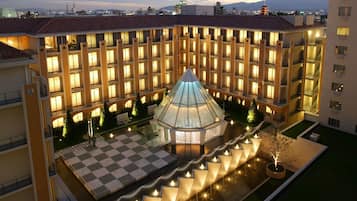The best things to do in Kyoto invite you to explore both the history and present day of this unique city. It’s said that in Kyoto, you’ll experience the ‘real’ traditional Japan. If you take a troll along the narrow historic streets, you’ll discover centuries old wooden houses that are still very much in business today.
On your journey along Kyoto’s alleys, you’ll discover the irresistible charms of this ancient city: Sliding doors, scent of incense wafting from the temples and shrines, lush parks and geishas and maikos dressed in beautiful kimonos walking down the street. Read on to learn what to see to find out the essence of Kyoto.
What are the best things to do in Kyoto?
- 1
Kyoto's most famous temples and shrines
Tranquil havens in a bustling city
- History
- Photo
Read moreThe "City of a Thousand Temples," isn't just a catchy nickname but a testament to the Kioto's temples, shrines and soul, steeped in centuries of spiritual tradition. Wander through towering vermilion gates, past serene gardens raked smooth by monks and up to mountaintop shrines that whisper of ancient rituals.
Whether you're seeking the perfect Zen meditation spot or marveling at intricate Buddhist artwork, Kyoto's temples and shrines offer a unique blend of history, beauty and tranquility. This journey through Kyoto's sacred sites is a chance to immerse yourself in Japan's rich cultural tapestry, where every footstep brings you closer to the heart of this extraordinary city.
Map - 2
Nijo Castle
A unique Shogun residence

- Families
- History
- Photo
The unique Nijo Castle is the Kyoto Residence of the Tokugawa Shogun, and it was built in 1603. It has never been reconstructed; everything about the castle is original, including the interior. A favorite for many visitors is the ‘nightingale floor’ leading to the grand chambers. It got its name from the squeaking floorboards that made it difficult for intruders to sneak in.
The castle richly furnished with beautiful woodcarvings and paintings by the top artists of the period. Many major Japanese historical events took place at Nijo Castle, including the last Tokugawa shogun handing power over to the Emperor in 1867 and thus ending the Tokugawa shogunate's 250-year rule. Nijo Castle is listed as a UNESCO World Heritage site.
Location: 541 Nijojocho, Nakagyo Ward, Kyoto, 604-8301, Japan
Open: Daily from 8.45 am to 5 pm (closed on Tuesdays in January, July, August, and December)
Phone: +81 (0)75-841-0096
Map - 3
Gion geisha district
A glimpse into the world of geishas

- History
- Photo
- Unusual
Gion, Kyoto's most famous geisha district, is a place that transports you back in time. Imagine strolling down narrow streets lined with traditional wooden buildings, their facades glowing with the warm light of paper lanterns. This is the world of geisha and maiko (apprentice geisha), the skilled female entertainers who are living embodiments of Japanese culture and grace.
While a glimpse of a geisha or maiko is a highlight of any visit to Gion, it's important to remember that they are working professionals, not tourist attractions. Avoid being intrusive and be respectful if you're lucky enough to see one. The best chance of spotting a geisha is during the early evening, when they're on their way to appointments at teahouses.
Location: Gionmachi Minamigawa, Kyoto, 605-0074, Japan
Map - 4
The Philosopher’s Walk
Romantic walk under the cherry trees

- Couples
- Families
- Photo
The Philosopher’s Walk is a scenic route that got its name from the famous Kyoto University scholar, Ikutaro Nishida. He used to take his daily walk through this picturesque area to keep fit, contemplate and ponder. The walk (also known as Tetsugaku No Michi) follows a cherry-tree-lined canal leading from Ginkaku-ji, along the base of the Higashiyama Mountains, south to Nanzen-ji. Quaint cafes, craft shops and restaurants now line the Philosopher’s Walk.
During the cherry blossom season, it's a busy promenade as couples from across the country converge here. The 1.2-mile route takes about 30 minutes to walk, but with so any interesting things to see here, you might end up spending a few hours exploring the area.
Location: Sakyo Ward, Kyoto, Japan
Map - 5
Ninenzaka and Sannenzaka historic streets
A glimpse into old Kyoto

- Food
- History
- Shoppers
Ninenzaka and Sannenzaka are two charming, traditional streets located in the Higashiyama district, right near Kiyomizu-dera Temple. These narrow streets are lined with wooden buildings that house traditional shops and restaurants. You’ll get a glimpse into old Kyoto and a chance to pick up some unique souvenirs. You’ll find a variety of shops selling kimono, ceramics and local crafts. The restaurants offer refreshments and local Kyoto specialties, like yuba (tofu skin) or Kyo-yasai (Kyoto vegetables).
Ninenzaka and Sannenzaka can get very crowded, especially during peak season. If you want to avoid the crowds, try to visit earlier in the day or later in the evening. The streets are also quite hilly, so be sure to wear comfortable shoes.
Location: Masuyacho, Higashiyama Ward, Kyoto, 605-0826, Japan
Map - 6
Kyoto Tower
Stunning views from towering heights

- Families
- Photo
Kyoto Tower (Nidec Kyoto Tower) stands 430 ft above the city offering panoramic views of the city. From the observation decks, on a clear day, you can see all the way to Osaka Bay. You'll find a 4-star hotel, a shopping arcade, a cocktail bar and several restaurants housed in the tower.
The tower’s modern structure fits well into the ancient capital’s landscape. It’s a major icon, the tallest building in Kyoto and very popular among locals and visitors alike. Kyoto Tower is next to Kyoto Station and can be seen from far and wide.
Location: 721-1 Higashishiokojicho, Shimogyo Ward, Kyoto, 600-8216, Japan
Open: Daily from 10 am to 9 pm
Map - 7
Arashiyama Bamboo Forest
Peace and quiet amidst the towering bamboo

- Budget
- Photo
The Arashiyama Bamboo Forest is an enchanting network of towering bamboo stalks located in the western Kyoto, nestled at the foot of the Arashiyama Mountains. It's one of Kyoto's most iconic sights and a must-visit for any nature lover. The forest consists mainly of moso bamboo that can reach up to 98 ft in height.
Walking through the forest is an immersive experience. The towering stalks create a natural tunnel, filtering the sunlight and creating a peaceful, almost serene atmosphere. The sound of the wind rustling through the bamboo leaves is said to be one of the "100 Soundscapes of Japan" by the Japanese Ministry of Environment. You can reach Arashiyama easily by public transportation from Kyoto city center.
Location: Sagaogurayama Tabuchiyamacho, Ukyo Ward, Kyoto, 616-8394, Japan
Map - 8
Kyoto museums
Unveiling Kyoto's history and hidden worlds
- Families
- History
Read moreBeyond the serene temples and captivating gardens lie worlds waiting to be explored within Kyoto's museums. Kyoto isn't just a city steeped in tradition; it's a treasure trove for the curious mind. Whether you're a history buff seeking samurai armour and ancient scrolls, an art aficionado drawn to exquisite calligraphy and delicate kimonos, or a tech enthusiast marveling at bullet trains and futuristic robots, Kyoto's museums cater to every interest.
Get ready to delve into the city's rich cultural tapestry, from its artistic heritage to its cutting-edge innovations. You’ll discover hidden gems and must-see exhibits to make your Kyoto adventure enriching and unforgettable.
Map - 9
Kyoto’s hidden temples
Lesser-known holy sites beyond the well-trodden path
- Adventure
- History
- Unusual
Read moreKyoto, brimming with over 1,600 temples and shrines, offers a secret world for those willing to stray from the beaten path. The hidden gems you might miss on a typical Kyoto itinerary are nestled on mountain side or amidst bamboo groves like the Adashino Nenbutsu-ji temple. It’s famed for its over 8,000 weathered stone figures depicting disciples of the Buddha. There are mystical “forgotten” temples that are coved in moss, creating a charming and intimate space perfect for quiet reflection.
Exploring these hidden temples will allow you to experience a different side of Kyoto, away from the throngs of tourists. Each temple offers a unique atmosphere and cultural experience, making them worthwhile detours on your Kyoto adventure.
Map - 10
Traditional Japanese performing arts
Exquisite shows and experiences

- Group
- History
Kyoto is a perfect place to catch a glimpse of the traditional Japanese theatre, including popular stage drama like Kabuki and Noh. Kyoto Minami-za is one of the best places to experience Kabuki theatre in the city. The unique theatre Gion Corner offers performances in seven professional performing art genres: Kyogen classical comedy, kyomai dance, gagaku, koto harp, bunraku puppet theatre, tea ceremony and flower arrangement.
If you’re in Kyoto in May or October, visit the Kamogawa Odori event at Pontocho Kaburenjo Theatre. Geishas perform brilliant classical dances and musical recitals during daily shows. With exquisite costumes, make up and props, these public geisha performances are extremely popular.
Map - 11
Kyoto's imperial villas
A journey through art, nature and Japanese nobility

- History
- Photo
Peek into the world of Japanese nobility with Kyoto's imperial villas. These aren't your typical, fortified castles. Instead, they're exquisite retreats, designed for tranquility and communion with nature.
Katsura Imperial Villa stuns with its seamless blend of architecture and garden, while Shugakuin Imperial Villa offers a sprawling retreat with three distinct gardens, each a masterpiece in its own right. Nijo Jinya, on the other hand, provides a glimpse into the power of the Tokugawa Shogunate, showcasing impressive castle architecture and hidden security features. Exploring these imperial villas promises a unique window into Japanese history, aesthetics and the pursuit of serenity.
Map - 12
WAK JAPAN
Hands-on experience in Japanese culture

- Group
- History
- Unusual
WAK JAPAN is a centre of traditional Japanese arts where visitors can take courses or observe masterful demonstrations by some of Kyoto’s most skilled craftspeople. You can learn about tea ceremonies, flower arrangement, calligraphy, origami, taiko drumming, Japanese cooking and dance or do a food or sake tasting. You’ll get to know the secrets of Kimonos and even wear one yourself.
To secure your place, do book your course or a demo in advance. To reach WAK JAPAN, take the Karasuma subway line to Marutamachi station, and you’ll find WAK JAPAN only a 5-minute walk from the station.
Location: 761 Tenshucho, Nakagyo Ward, Kyoto, 604-0812, Japan
Open: Daily from 9 am to 5.30 pm
Phone: +81 (0)75-212-9993
Map - 13
Kyoto's gardens
Green oases in a bustling city

- Budget
- Families
- Photo
Kyoto boasts a treasure trove of public gardens, each offering a unique and captivating glimpse into Japanese garden design principles. The expansive Kamoya Botanical Garden showcases over 12,000 plant species from around the world. It's a haven for nature lovers and a great place to learn about various flora. Shinsen-en Garden is a tranquil oasis nestled in the heart of Kyoto. It features a large pond, Shinto shrines and a "Bridge of Wishes" where you can toss a coin and make a wish.
In the beautiful Jonangu Shrine Garden, you can meander along its paths and discover hidden wonders around every bend. This garden incorporates a central pond, an island, two connecting streams and a terraced waterfall.
Map - 14
Arashiyama and Togetsukyo Bridge
Where nature paints a masterpiece across the seasons

- Budget
- Couples
- Photo
Arashiyama and Togetsukyo Bridge are two inseparable names when it comes to Kyoto sightseeing. Arashiyama is a verdant riverside area in the western outskirts of Kyoto where you can experience the pink cherry blossoms of spring, the lush greens of summer, the fiery reds of autumn and the stillness of a cool winter. You’ll find hiking trails, viewpoints and picnic spots to escape the bustling city.
The Togetsukyo Bridge (the Bridge to the Moon), spans the Oigawa River. The bridge's simple design blends harmoniously with the surrounding mountains and bamboo groves. Its reflection in the calm water creates a stunning visual, especially during sunrise or sunset. This picturesque bridge is a beloved landmark and a popular spot for photos.
Map - 15
Hakusan-yu
Public bathhouses for relaxation and local immersion

- History
- Unusual
The two public bathhouses (sento) in Kyoto, Hakusan-yu Rokujo and Hakusan-yu Takatsuji, offer a traditional Japanese bathhouse experience, perfect for unwinding and immersing yourself in local culture.
Hakusan-yu Rokujo is known for its spacious layout and variety of baths. Situated near Rokujo Station in Kyoto's Nakagyo Ward. It boasts indoor and open-air baths, a sauna, a jet bath and a cold bath. The open-air bath, available in the mornings, is a unique experience, allowing you to bathe under the open sky. Hakusan-yu Takatsuji, offers a more traditional experience with indoor baths, a sauna and a cold bath. They're known for their high-temperature sauna, a favorite among sauna enthusiasts. Situated near Shijo Station in Kyoto's Shimogyo Ward, attracts a younger crowd.
Map








